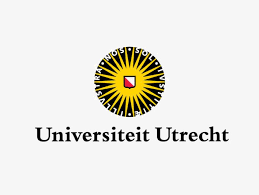
17 May Vidi awarded to Maarten Altelaar
Understanding how living systems function is one of the fundamental goals in bio-molecular science. The molecular machinery controlling these functions is comprised of a highly complex collection of distinct molecules that act in coordinate fashion. The global analysis of proteins, representing the key functional entities in the cell, forms arguably the basis for understanding how cells function. However, gathering information at the proteome level poses a tough analytical challenge, when comparing it to data collection at the genome and transcriptome level. This is mainly caused by its highly multilayered character with alternative splicing and diverse posttranslational modifications (PTMs), further amplified by the dynamic interplay between PTMs and proteins in complexes and signaling networks. This interplay leads to so called ‘crosstalk’ mechanisms, where, if one node in the complex machinery is affected, other nodes respond either compensatory or inhibitory. Uncovering this extreme complexity is one of the challenges that drives proteomics research, which heavily relies on mass spectrometry based protein sequencing. With the here proposed developments in methodology, sample preparation and computational analysis, I will contribute to overcoming this challenge. I will develop and implement a unique combination of high resolution quantitative proteomics tools that allow the analysis of this dynamic proteome at system wide scales, while maintaining physiologically relevant conditions. The tools will focus on sensitivity, crucial when dealing with limited sample amounts, comprehensiveness, to tackle (PTM) crosstalk, and throughput, important when targeting many different sample types. As model system I will perturb the melanoma cancer proteome, using physiological relevant slow dividing cell lines, tumour tissue and patient derived xenografts, and monitor its response in the face of PTM expression, network rewiring and drug resistance. As many types of cancer are lacking proper treatment caused by limited understanding of the molecular mechanisms involved, the developed technology will be widely applicable.
![]()


Sorry, the comment form is closed at this time.